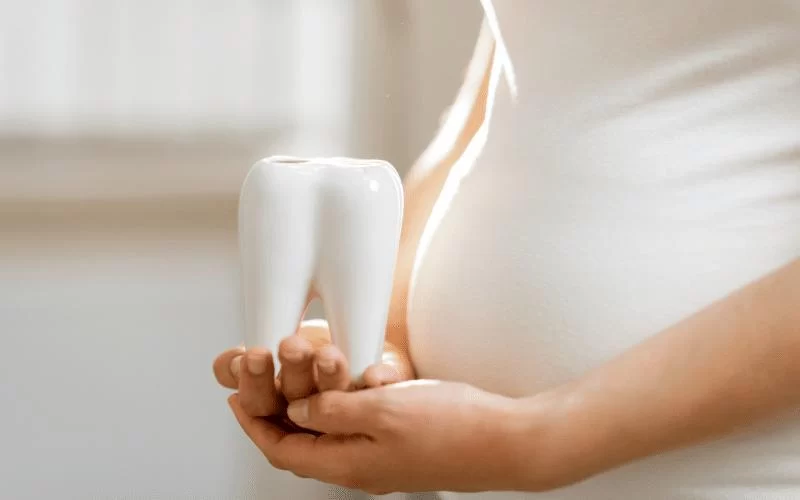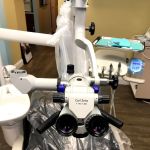
The Connection Between Oral Health and Pregnancy: Essential Tips for Expecting Mothers
- Understanding the Connection Between Oral Health and Pregnancy
- How Pregnancy Affects Your Oral Health
- Pregnancy and Gum Disease: What You Need to Know
- Tips for Maintaining Oral Health During Pregnancy
- Real-Life Stories: The Impact of Pregnancy on Oral Health
- Recommendations for Optimal Dental Care During Pregnancy
Understanding the Connection Between Oral Health and Pregnancy
Pregnancy brings about many changes in a woman's body, and oral health is no exception. Hormonal fluctuations during pregnancy can affect gums, teeth, and overall oral hygiene. Understanding the connection between oral health and pregnancy is essential for expecting mothers to maintain their well-being and prevent complications. Poor oral health can not only impact a mother's comfort but also influence the health of the baby. In this guide, we'll explore the relationship between pregnancy and oral health and provide tips for keeping your smile healthy.
How Pregnancy Affects Your Oral Health
During pregnancy, hormonal changes, particularly an increase in progesterone, can make gums more susceptible to inflammation and infection. This can lead to conditions like pregnancy gingivitis, characterized by swollen, bleeding gums. Moreover, changes in diet and increased acidity in the mouth (due to morning sickness) can also impact dental health.
Pregnant women may also experience an increased risk of tooth decay due to changes in eating habits, such as cravings for sugary foods or acidic drinks. Additionally, the pressure of a growing baby can affect the alignment of teeth, leading to discomfort and even misalignment.
Pregnancy and Gum Disease: What You Need to Know
Pregnancy gingivitis is a common condition that affects many expecting mothers. It occurs when hormonal changes increase blood flow to the gums, making them more sensitive and prone to bleeding. If left untreated, gingivitis can progress to more severe forms of gum disease, such as periodontitis, which can affect both the mother's and baby's health.
Research has shown that untreated gum disease during pregnancy may be linked to an increased risk of preterm birth and low birth weight. Therefore, it is essential to take preventive measures to maintain gum health throughout pregnancy. Regular brushing, flossing, and dental check-ups are vital for avoiding serious oral health problems.
Tips for Maintaining Oral Health During Pregnancy
Maintaining good oral hygiene during pregnancy is crucial for both the mother and baby. Here are some tips for keeping your teeth and gums healthy:
- Brush and Floss Regularly: Brush your teeth at least twice a day with fluoride toothpaste and floss once a day to remove plaque buildup.
- Eat a Balanced Diet: A healthy diet is important for oral health. Include calcium-rich foods like dairy products, leafy greens, and fortified cereals to support strong teeth and bones.
- Manage Morning Sickness: If you experience morning sickness, rinse your mouth with water or a fluoride mouthwash after vomiting to neutralize acids and protect your teeth.
- Visit Your Dentist: Schedule regular dental check-ups during pregnancy. Let your dentist know you're expecting so they can adjust treatments accordingly.
Real-Life Stories: The Impact of Pregnancy on Oral Health
Many expecting mothers have shared their experiences with oral health during pregnancy. For example, Emily, a 30-year-old mother-to-be, experienced severe gum bleeding and discomfort during her second trimester. She didn't realize that pregnancy gingivitis was the cause until her dentist confirmed it during a routine check-up. After following proper dental care practices and getting a professional cleaning, Emily's symptoms improved, and her pregnancy proceeded without complications.
Another case is Sarah, who had cravings for sugary snacks during her pregnancy. She developed tooth sensitivity and cavities, which were further exacerbated by her inability to maintain consistent dental hygiene due to morning sickness. With her dentist's guidance and a change in her eating habits, Sarah's dental health significantly improved, and she was able to enjoy a healthy pregnancy and avoid tooth decay.
Recommendations for Optimal Dental Care During Pregnancy
To ensure optimal dental health during pregnancy, expecting mothers should follow the following recommendations:
- Brush your teeth gently with a soft-bristled toothbrush to avoid irritating sensitive gums.
- Use a fluoride mouthwash to help protect your teeth from cavities and strengthen enamel.
- Stay hydrated to prevent dry mouth, which can increase the risk of cavities and gum disease.
- Consider visiting your dentist for a professional cleaning to address plaque buildup and prevent gum disease.
By taking these preventive steps, you can maintain a healthy smile and reduce the risk of complications during pregnancy. Remember, oral health is an essential aspect of overall well-being, especially when you're expecting.







 Access Dental Group Manhattan PLLC3.0 (18 review)
Access Dental Group Manhattan PLLC3.0 (18 review) South Shore Dental Care: Dory Stutman, DDS5.0 (7 review)
South Shore Dental Care: Dory Stutman, DDS5.0 (7 review) Savage Success | Rhonda Savage DDS1.0 (1 review)
Savage Success | Rhonda Savage DDS1.0 (1 review) David L Goettee, D.D.S., PC5.0 (1 review)
David L Goettee, D.D.S., PC5.0 (1 review) Nuttall Smiles4.0 (424 review)
Nuttall Smiles4.0 (424 review) Patricia Pasnikowska DDS5.0 (105 review)
Patricia Pasnikowska DDS5.0 (105 review) The Importance of Oral Health Education During Pregnancy for a Healthy Pregnancy
The Importance of Oral Health Education During Pregnancy for a Healthy Pregnancy Best Tips for Brushing Your Teeth Properly for Healthy Gums: Essential Techniques for Oral Health
Best Tips for Brushing Your Teeth Properly for Healthy Gums: Essential Techniques for Oral Health Why Skipping Dental Checkups Can Lead to Bigger Oral Health Problems
Why Skipping Dental Checkups Can Lead to Bigger Oral Health Problems Advantages of Porcelain Dental Restorations
Advantages of Porcelain Dental Restorations How Can Diabetes Cause Tooth and Gum Problems? Preventing and Managing Oral Health Issues
How Can Diabetes Cause Tooth and Gum Problems? Preventing and Managing Oral Health Issues Healthy Habits for Promoting Good Oral Health and Hygiene: Tips for a Healthy Smile
Healthy Habits for Promoting Good Oral Health and Hygiene: Tips for a Healthy Smile